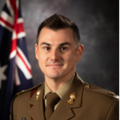This article was a submission to the 2022 Cove Competition.
During my handover as Commanding Officer of the 6th Engineer Support Regiment, I was brought up to speed by the unit’s key appointments who each skilfully and diligently briefed me on their responsibilities to the headquarters I was about to lead. I was humbled by this collective that included the OPSO, XO, RSM, ADJT, S4, S6, S7, WHS rep, welfare officer, rehab coordinator, Chief Clerk, QM, ASM and, of course, Padre. The professionalism, pride, and ownership they each took in leading their respective lines of effort was inspiring; however, having seen the horsepower of this team, a strange though entered my mind: what was actually left to for me to do? I literally had ‘a guy or gal’ for everything. There was not a situation which could reasonably be expected to arise to which I could not call upon this impressive team of experts to provide me support, advice, and assistance in reaching a successful resolution.
As I digested this vast bandwidth of knowledge being presented, I was comforted by the reassuring thought that I would never fight alone when an embarrassingly obvious realisation struck me – I was now the most senior officer in the unit, something that I don’t think truly sunk in until I found myself asking questions of my new team from the head of the table of the regiment’s conference room. This meant I was now solely responsible for the success or otherwise of every unit undertaking. Whilst I had an incredible team at my disposal, I could no longer consider what small part I might have played in a team failure, but instead had to face head-on the uncomfortable question: what did I do, or indeed fail to do, which allowed this result to manifest? The responsibility for mission success now rested squarely on my shoulders, and mine alone.
This seemingly obvious realisation prompted a revelation – the future success of the amazing capability of which was now entrusted to me as the chief custodian, would depend on my ability to communicate a clear vision which united the team to a common purpose and was underpinned by a tangible plan of how we would move out and achieve progress. No one would provide this to me, and I would be required to analyse strategic guidance and steer the unit from its wheelhouse.
It took little further thought to recognise the essential role our people would be required to play in both achieving the mission and realising the vision I would prescribe. The morale and willing consent of our soldiers who form the living heart and soul of the unit would absolutely underpin the unit’s ability to generate capability now and in the future. A positive command climate would be critical in achieving a culture conducive to success. This was also mine to own and would directly impact all aspects of the unit’s being. Whether people came to work every day engaged, challenged, valued, respected, and – most importantly – enjoying their service would be a direct reflection of the tone I set and the energy I personally gave. Like mission success and the unit’s vision for the future, the health of the unit’s culture was something I was simply unable to delegate or outsource, no matter how talented and committed the team around me.
Happily, upon reflection I came to realise I had inadvertently taken ownership of this ‘big three’, without consciously recognising the mechanics of what I was doing. More recently, I have come to think of them as fundamental and essential duties of command and leadership. Gripping this concept up in my own mind has certainly brought clarity of purpose to my busy days, allowing me to put the seemingly urgent to the sword and deliberately create time and space to get after the truly important things which can simply not be delegated – mission, vision, and culture.









